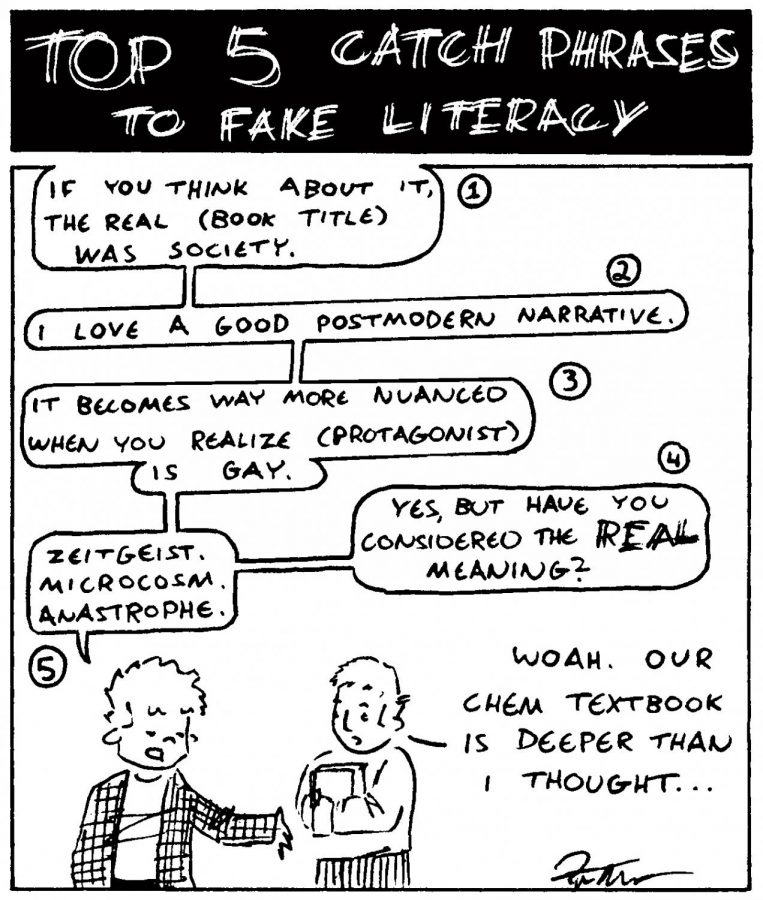Column: You keep Macbeth, I’ll take Beloved
January 23, 2019
Sometimes I wish people would stop writing wonderful words. At least for a short while.
I need time to sit on the floor with a cup of coffee and try to catch up with all of — or at least a teaspoon of — the sentences humans have already crafted. This probably sounds quaint.
Frankly, I just need the time to come to terms with a few things. It’s now much more difficult to be “well-read” than it was when many of the so-called classics were written, or a group of old men in tweed with funny mustaches sat around and decided what it meant to be “educated.”
It was easier to expect people had read “The Odyssey” because there were far fewer works to choose from. People read Kant and Sartre and Shakespeare because they didn’t have the option of Toni Morrison or Joan Didion or Chimamanda Ngozi Adichie.
You’re probably thinking, “But I’ve read Shakespeare!” For most of us, it was really one or two works in eleventh grade, and it was probably the SparkNotes.
I am just as guilty of this as anyone else. I often come across references to a passage about delightfully nostalgic madeleine cookies that some writer assumes I have read. I haven’t. I saw how large the book was and I put it right back down.
In the unstoppable deluge of news headlines and Twitter wars and Pulitzer Prize winners and glorious debut novels, I may never get to Proust. I may never be the truly well-educated ideal some now decorate with the word “humanics.” I may not catch up that far back. The Library of Congress registered more than 450,000 new works just in 2017.
College has taught me how ignorant I am to the sheer vastness of the human creative product. I have the sense that there’s this looming, wonderful mass of prose out there — like an artistic fatberg, but less nauseating.
A part of me knows I shouldn’t care about being “well-read.” That phrase looks for external validation. It smells of Ivy League, argyle, the boat club, Chanel No. 5 and thick oak doors still closed to deserving people who knock at halls of power.
And yet another part of me still sees that elitism as what I’m taught to aspire to, and I’m not quite sure how to shake it.
I think I’ll start with my reading list. I’m taking suggestions. If we read from less Shakespeare and instead from an ever-widening range of voices, that’s not a loss.
I have faith that some literature student somewhere will have read those anointed figures of antiquity and still carry their bloodline of thought. I hope they do, because The Greats gave us so many ideas to leap from. Because a rose by any other name will forever be called a Shakespeare spin-off. I hope they can carry these works with care, like a small egg.
I’m sure some would call this lazy, but I’m ready to leave the classics for passionate scholars to bear. In a world of art which multiplies and time that only seems to shrink, I’m ready to burn the traditional parameters of “well-read.” Or maybe I’ll reach them when I’m 95 with nothing better to do.
Regardless, it’s the writers of today who excite me most, who give me new eyes to see the world as weird and wonderful again.
Writers who don’t make me want to jump for the SparkNotes.


















